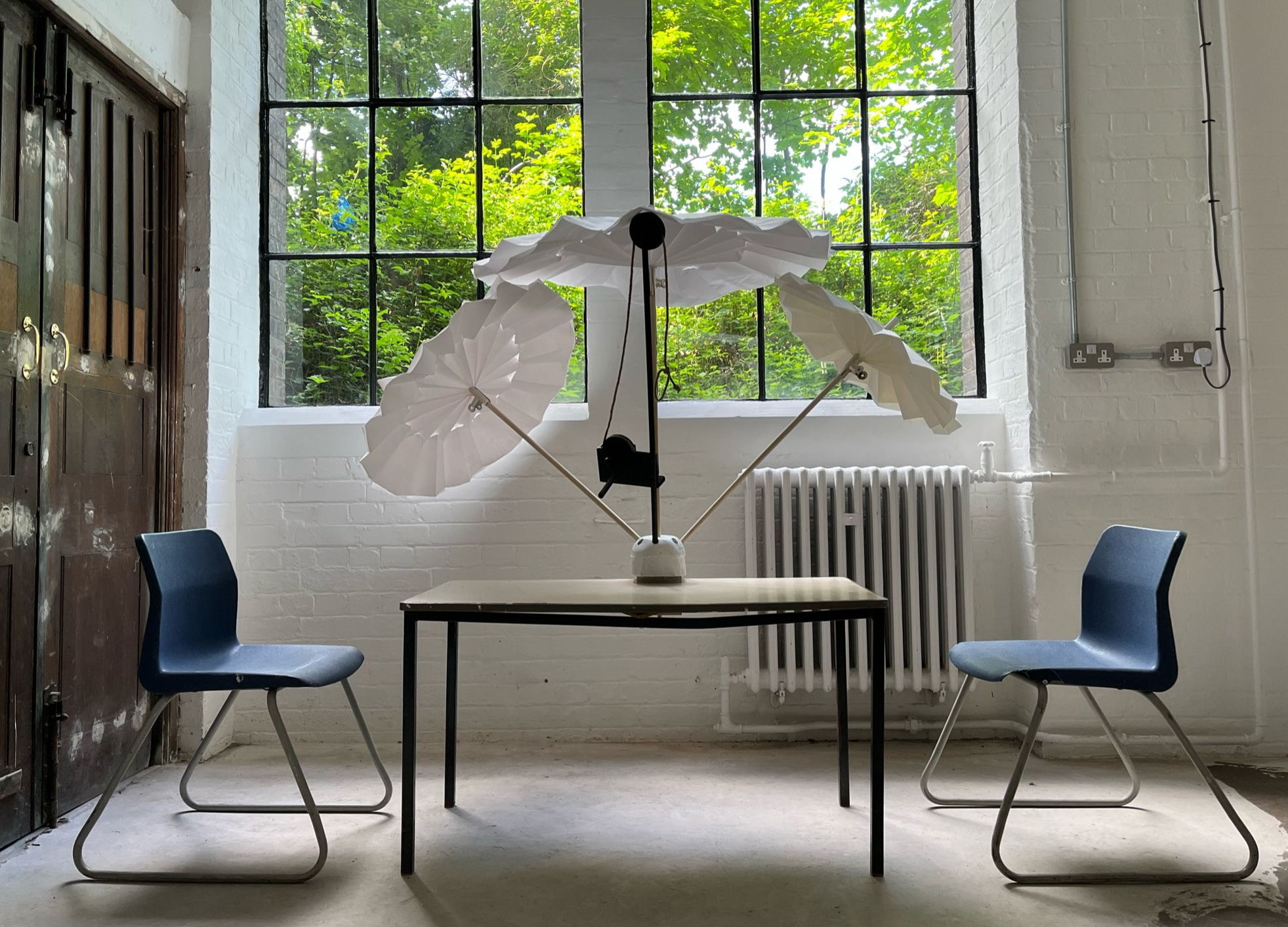
Case Study: Sustainable Exchange with Copeland Park & Bussey Building

- Written byAlexandra Rodriguez Cifre
- Published date 13 July 2022

First-year students from BA Interior and Spatial Design at Camberwell College of Arts collaborated with Copeland Park & Bussey Building, dubbed as Peckham’s Cultural Quarter, to co-develop a programme of sustainable practices for businesses operating in the local area.
The Challenge
During the 9-week live project, titled Sustainable Exchange, students worked alongside 10 business partners based at Copeland Park & Bussey Building – including radio broadcasters, yoga coaches, printmakers, chefs and others – to identify social and environmental opportunities that could be implemented through spatial design.
The 76 Interior and Spatial Design students were split in groups of 8 and matched with respective business partners, coordinated by project lead Lucy Eccles and year-one leader Reem Charif. Their task was to use research design insights to propose more socially and environmentally sustainable approaches to the businesses’ production cycles.

Our Approach
The project focused on 3 exchange initiatives based at Copeland Park & Bussey Building:
- Gift Exchange: Students spent the day in their partners’ space, surveying, drawing, photographing and, most importantly, conversing and observing. At the end of the session, the group of students presented a gift of thanks to their partners in the form of ‘collaborative action’ or a personal artefact.
- Idea Exchange: Students constructed a physical 1:1/body scale intervention informed by discussion with their partners. On the day, they tested the intervention’s sustainable impact by installing them into partner’s spaces to reflect on the development of the design and methodologies. The students took on board the feedback and proposed a second individual design, articulated through drawings and small-scale models.
- Celebratory Exchange: students and partners will put together an exhibition at Copeland Park, as part of Peckham Festival, to showcase the outcomes achieved through this collaboration.
The Result
Through this knowledge exchange project, students and partners investigated ideas of circular thinking in design, proposing new activities and spaces; for example, designing water harvesting trollies, eating utensils, recycled furniture from yoga mats, tea recycling stations or pedal cycles for different body abilities. Through these proposals, the students addressed material sustainability, ethical equity and social collaboration as key ideas for sustainable relationships in neighbourhoods.
For example, yoga studio Yogarise can now see the potential for the use of old matts and how to discard them responsibly; for Oi Spagetti, students installed a ‘conversation shelf’ to encourage conversations between customers while they wait for their takeaway meal; at the plant shop L’Appartement, they used a plant trolly to remind people that they can purchase soil and recycle their dead plants; and an installation at Electric Pedals addressed body equity and access for different abled bodies.

Impact
The main impact of this project revolves around social and environmental sustainability advocacy. The partner businesses involved in the collaboration have taken on board the designs proposed by the students – inside and outside their buildings.
All the proposals created content and awareness on the site, which coupled with the physical 1:1 interventions inserted a new landscape in-between the buildings and opened up conversations about the power of art and design to address ethical, social and environmental issues.
Following the success of Sustainable Exchange, Copeland Park said they would like to continue the collaboration with UAL and look for new opportunities to work together.
- Find out more about Knowledge Exchange at UAL and how you can work with our talented students and graduates.
- If you're interested in collaborating with UAL, get in touch with us! Email us on: business@arts.ac.uk